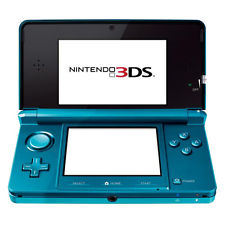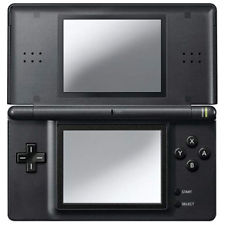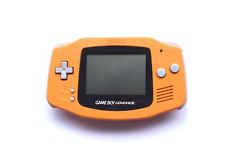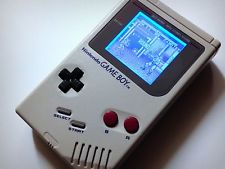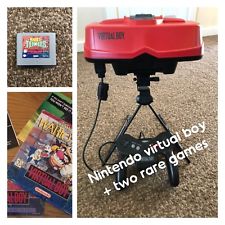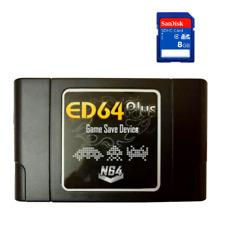|
August 29th, 2013, 23:56 Posted By: wraggster
Nintendo has an annoying habit of defying what many people expect them to do.
After conditioning the games press into expecting precise and targeted Nintendo Direct messaging, yesterday's 2DS announcement was a bit of a ham-fisted mess.
While lots of people will peer at the peculiar 2DS and wonder what it means, it has left me convinced that Nintendo's investing smartly in what lies ahead, and what lies beyond the DS/3DS line.
Maybe its next move in handheld games will be into that area we've all wondered about: a proper Nintendo-style tablet device. And if Nintendo moves in this direction, I reckon it will do this world justice.
2DS is a sensible step for Nintendo. It is cheap both in terms of RRP and cost, seems correctly targeted at the value end of the market, physically it looks robust, and it launches just as Nintendo plans to release the latest in its evergreen Pokemon franchise.
But it's just a single step, a short stride.
The bigger leap, a more relevant tablet-style device in tuned with the future of handheld games could be next.
I know: it's massively obvious to point out that a Nintendo games tablet will follow. And conversely a lot of people - my colleagues included - think it's ludicrous, that Nintendo will forever march to the beat of its own drum. After all, Nintendo's charm lies in how unpredictable it is.
But there's plenty of evidence that points to Nintendo at the very least investing better for what lies ahead, if not a specific tablet device.
Nintendo earlier this year merged its home hardware and handheld device design teams into one big unit, with the express aim of sharing know-how, technology, and building a bridge between consoles and portables. The 2DS itself looks like the first product of that, and a move towards-slate style devices - its 'two' screens are in fact even one large touch-screen to cut costs. Then there's Nintendo's existing tablet the Wii U controller, itself an experiment in the second screen ideas borne from asking how small touch screens can interact with big-screen games.
I'm not the first to think these things add up to more, and I won't be the last. But there are two particular factors at play around 2DS, and Wii U, that have me excited by the prospect of Nintendo's next full hardware platform, should things play out in this direction. And it really has to launch something new sharpish - Wii U isn't cutting it, and the dual-screen format has limited life-span, as I argue below.
A NEW GENERATION
Firstly, there's the marked speed with which 2DS has appeared and what that might tell us about some subtle shifts for Nintendo.
Nintendo characteristically refreshes its handheld hardware every year, so in a sense the 2DS is a bit overdue. But this time around the device is explicitly chasing the cheaper end of the market, and in some ways is pushing its handheld to the sub-£100 ultra mass market audience at least a year earlier than you'd expect.
That's a surprise because this year the 3DS has done very well. It is the only format *growing* its software sales this year in the UK, outselling all others.
So arguably Nintendo has done well enough this year to potentially work through Christmas without any shift in primary target demographic, as it is doing in Japan where 3DS rules and 2DS isn't being released.
Some key reasons could explain why Nintendo has stepped things up a gear, however:
- The core audience XL is aimed at has been saturated - adults and Nintendo fans have had their fill, especially given how spoilt for choice they have been this year in terms of first-party games on 3DS.
- Plus there is pressure around every corner from Nintendo. It is feeling pinched by both newcomers and incumbents, from iPad to the threat of next-gen. So a highly competitive price and youth-friendly device is a good way to steel the business ahead of Christmas.
That just leaves Nintendo to speed up the DS/3DS/2DS transition swiftly in order to wrap this platform's story up ahead of schedule.
This would certainly please investors in the short-term, while Nintendo dreams up its next move. Even with buckets of cash in the bank, company president Satoru Iwata has been asked by analysts and commentators about having to compete with other game markets on iOS and beyond. It's reached the point where he is politely exasperated by this talk - no, Nintendo doesn't consider smartphones direct competition; yes, they are still focused on marrying their own hardware and software concepts; no, he won't resign just because the firms sales have slowed after the most successful period in its history.
2DS in that context leapfrogs ahead to the chapter where Nintendo is growing its audience once again, and priming a new generation (of humans, that is, not hardware) with the core IPs that will prop up the next format.
GETTING SOFTWARE RIGHT
And it's how Nintendo is approaching software which gives me further cause for optimism about what might come next in its handheld games efforts.
Lazy commentary says that Nintendo should retreat from consoles and sell its games on other formats. That's bollocks. And even coldly and trying to be rational about it, this isn't something that seems likely in the medium-term. Nintendo's entire organisation is built around hardware plus software, not one or the other - whether you look at it from a management point of view, examine its forecasting, or just think about its pockets of sales, distribution, marketing, R&D and design talent.
But that has only become such a widely-repeated view due to the frustration with how Nintendo's performance in hardware is inconsistent in contrast to overall consistency amongst its studios. As a software company, it's generally still the one to beat. Be glass-half-full about it, though, and in that sense Nintendo's already halfway to having a good format. (Let's put third-party publishers to one side for this discussion - Nintendo treats them as an anomaly most of the time, so we may as well do that too.)
These days Nintendo is doing its best to share what it knows about said software with external developers, although you might not know it.
Despite all the noise from Sony and Microsoft, Nintendo has been pretty keenly courting indie developers too. It of course knows that the unknown microstudio of today might be the Mojang of tomorrow. It also needs to fill the bare shelves on its digital stores. Open cooperation with these new developers has primed a growing number of them to think again about Nintendo. Anecdotally, I understand that from a developer relations point of view Nintendo has upped its game measurably. While it may not have charismatic public figures engaging visibly and loudly the way SCEE's Shahid Ahmed is or the way Xbox Live man Chris Charla has, Nintendo has been allowing its most prized internal teams in Japan to give feedback on indie parent games. Having feedback from those akin to Miyamoto's protoge is a real USP that will tempt any game developer. And as for free dev kits: Nintendo has been giving hardware to developers for yonks, I have been told, it just hasn't felt the need to send a press release out about it.
It's this activity that has helped Nintendo gain some digital retail cred; eShop on both 3DS and Wii U are far from perfect, but they have taken Nintendo from an excruciating standing start to an active platform thanks to its internally-made games and this from small indies.
So, Nintendo clearing the decks for a new generation of portable hardware plus its behind-the-scenes efforts to improve its marketplace for games content certainly says to me there's a deeper investment in future console formats, not just the tail-end of its existing ones.
But even if it doesn't add up to that, at least we can argue that Nintendo is moving quicker than many have given it credit for in recent times.
http://www.mcvuk.com/news/read/opini...not-if/0120564
For more information and downloads, click here!
 There are 0 comments - Join In and Discuss Here There are 0 comments - Join In and Discuss Here
|
|
 NES
NES





